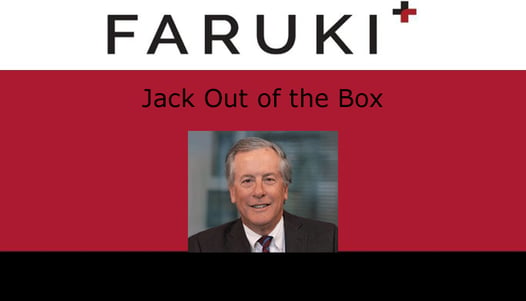- April 17, 2024
- Jack Greiner
- Jack Out of the Box
 Louis Farrakhan and his Nation of Islam organization recently saw a New York based federal court dismiss their libel suit against the Anti-Defamation League. The Court concluded that Mr. Farrakhan couldn't link the ADL's comments about antisemitism to any actual damage. The Court also ruled that many of the allegedly defamatory statements were protected opinion. And the Court rejected a request for declaratory and injunctive relief, because such relief would violate the First Amendment.
Louis Farrakhan and his Nation of Islam organization recently saw a New York based federal court dismiss their libel suit against the Anti-Defamation League. The Court concluded that Mr. Farrakhan couldn't link the ADL's comments about antisemitism to any actual damage. The Court also ruled that many of the allegedly defamatory statements were protected opinion. And the Court rejected a request for declaratory and injunctive relief, because such relief would violate the First Amendment.
Mr. Farrakhan's lawsuit was based on a number of statements and posts accusing him of antisemitism. According to the Court, the 150-page complaint set forth nearly a century's worth of grievances. The complaint sought $4.8 billion in damages, a declaratory judgment that the term "antisemite" is defamatory and an injunction prohibiting the ADL from referring to Farrakhan and the NOI as "antisemite."
The Court dismissed a number of the complaint's counts because it found that Farrakhan and the NOI lacked standing to bring the claims. Farrakhan and the NOI couldn't link the allegedly defamatory statements to any actual damage. This inability doomed the claims. For example, Count One of the Complaint alleged that Morgan State University denied Mr. Farrakhan permission to speak there in 2023 due to the "relentless misrepresentation of Mr. Farrakhan by the ADL as being, among other things, 'antisemitic.'" The Court found no tangible link between the ADL comments and the Morgan State action, noting, "[i]f standing were found to be present here, then the plaintiffs would have standing to sue the ADL for virtually any refusal by a third party to conduct business with the plaintiffs."
Mr. Farrakhan also ran into the opinion doctrine – statements that do not assert verifiable facts are not actionable in a libel suit. The court found the assertion that Mr. Farrakhan is antisemitic are not verifiable. And for this reason, it dismissed the claims based on this assertion. The court also found that Mr. Farrakhan's claims based on the ADL's assertion that he'd referred to Jews as "Satanic" were doomed by the ADL's providing instances where Mr. Farrakhan had said precisely that. True statements can't support a libel claim.
Finally, the Court rejected Mr. Farrakhan's requests for declaratory and injunctive relief. The Court found that the declaratory judgment would serve no judicial purpose. And it found that the requested injunction would "amount to a judicial order that suppresses speech . . . on the basis of the speech's content and in advance of its actual expression – in other words, a prior restraint on speech." Prior restraints are a First Amendment red flag – Courts will not impose this type of restraint without a showing of a compelling need. In the Court's view, Mr. Farrakhan did not come close to meeting the "unequalled power of the presumption against prior restraint."
Mr. Farrakhan may now appeal this decision, but the Trial Court's meticulous order will be difficult to overcome. Mr. Farrakhan ought not start spending that $4.8 billion just yet.
